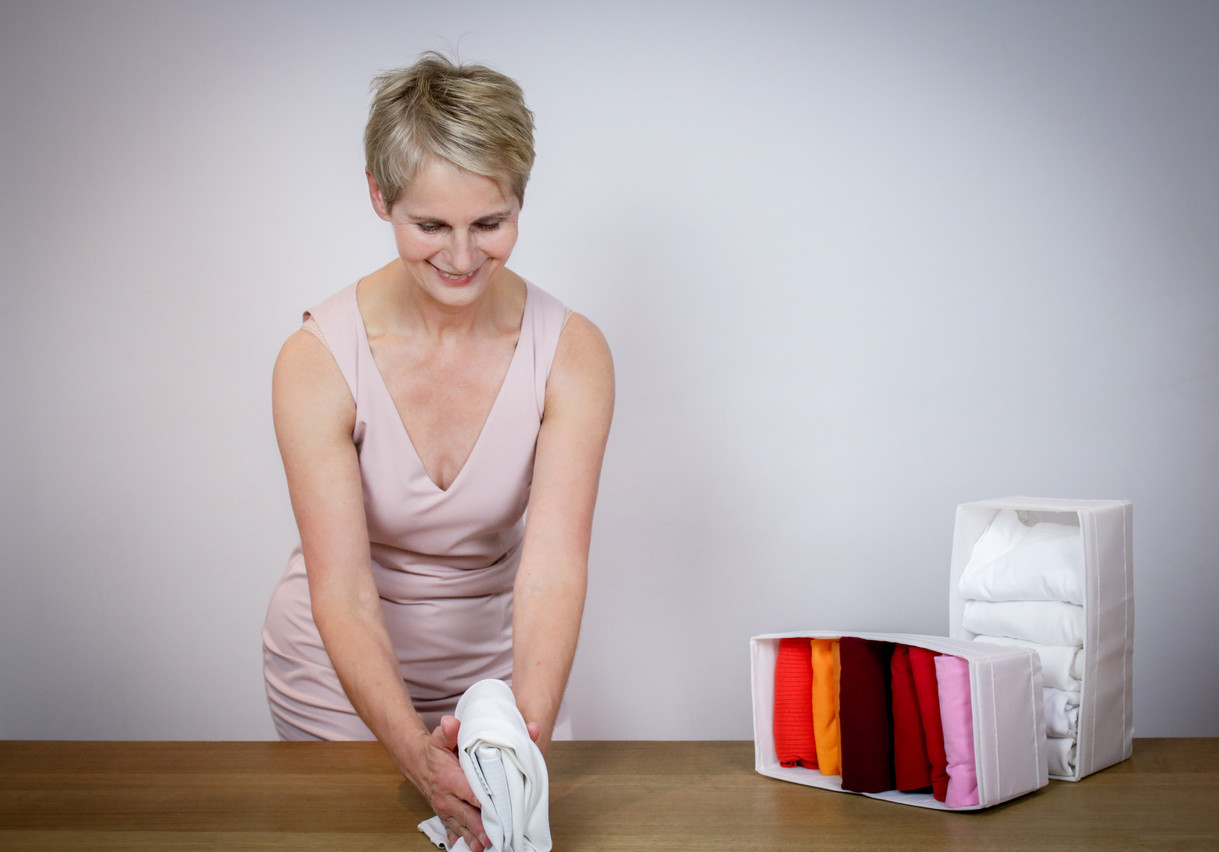Spring has officially announced itself with the first rays of sunshine illuminating our homes and workspaces. But if you’re not sure where to start your spring-cleaning project, you’re not alone. The age-old ritual that could span a few hours or weeks may sometime seem exhausting before one even begins. And while some may choose to distract themselves with music or start with the simplest tasks, the truth is, everyone prefers the most effective methods that would not be too energy draining and leave you frustrated mid-way through a clean up.
Historically, Buergbrennen bonfires [Luxembourgish tradition to drive away winter and welcome spring] or words like Lent [which means spring] and February [derived from the Latin word februum, which means purification] all point to several traditions linked to springtime. Although the idea of cleaning or tidying up is not new, methods have evolved.
The KonMari method developed by Japanese tidying expert Marie Kondo has specific rules on how to go about tidying up your space. But it goes beyond decluttering to adopting a life-changing lifestyle that sparks joy and increase one’s satisfaction. Ranked according to five main categories, the idea is to start with clothing and gradually move to books, papers, komono (miscellaneous items) and then sentimental items.
One of the first things people notice is how much of the items in each category they have amassed. “People are usually shocked. They see all the clothes they have and they're shocked. But this is useful. This is good to get motivated,” explained Basenach, who has been working with several clients in the grand duchy.
Beyond this, she explains that during this process of tidying up, people change and develop a completely different approach to life. “Everything you have in your house after having done the Marie Kondo festival sparks joy to you and this slowly changes your behaviour and there's a lot more positive energy. And when you are in this positive energy you take different [better] decisions,” Basenach explains.
Offices are not left out of the tidying festival. The same methods can be adopted to tidy up workspaces but also digital files on laptops, computers, and smartphones, for example, picture folders, unused applications and read emails that are no longer useful. “The idea remains the same. It's to live in a much lighter and clearer environment with only things that spark joy,” she adds.
However, the aim of the KonMari method is not to lead a minimalistic lifestyle but to ensure that one is surrounded with items that spark joy. While she lets clients decide on what to do with items that no longer spark joy, even though she doesn’t advocate throwing things away, she explains that the method encourages sustainable consumption and giving a second life to items. Clients sometimes choose to give to friends, charitable organisations or even sell more valuable items on e-commerce marketplaces.
You may start with “things” but slowly graduate to sifting people surrounding you, according to the KonMari method. “The whole process goes much further than tidying up the house,” says Basenach.
She suggests working with a KonMari consultant as the method requires a strong motivation and could be time-consuming at the onset and even emotional. But for those who may be willing to give it a try without a consultant, she recommends a good place to start will be to read books by Marie Kondo, watch the Netflix series, and respect the five tidying categories in the exact order.
You can make material donations to several non-profit organisations in the grand duchy such Red Cross, Caritas (identified needs for Ukrinians in Luxembourg will be made available on their website soon), Nei Arbecht, Dress for Success and many more.

